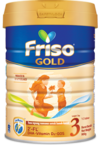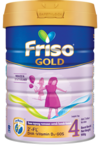Senaman Untuk Ibu Mengandung Mengikut Trimester
Senaman untuk ibu hamil sangat penting bagi kesihatan & keselesaan ibu.... read more

During pregnancy, whatever you choose to consume, you need to take your child and yourself into consideration. Is what you’re consuming good for your child? Is it beneficial for your health during this pregnancy? You also need to learn about when to start drinking milk during pregnancy. You may have questions such as if pregnant women can drink pasteurised milk, is it ok not to drink milk while pregnant, what milk is best to drink while pregnant and much more. Maternal milk can be consumed as soon as you realise you are pregnant. It will provide you with the necessary nutrients needed for your pregnancy.
Milk is a common drink that you might have in the morning and it’s possible to fit it into your diet during pregnancy. Many moms-to-be are asking whether cow's milk is a safe choice during pregnancy, and what alternatives to turn to if you can’t drink regular whole milk. In this guide, you’ll find some great tips and info on different types of milk and incorporating them into your diet during pregnancy. As always, we recommend that you consult with your doctor for advice before implementing any dietary changes.
This is a common question new moms ask and the answer is—it depends. Whole milk from cows is a healthy source of protein and many essential minerals such as calcium, vitamin D and vitamin B that both your body and developing baby need. In most cases, a few servings of milk can be safely included in your daily pregnancy diet.
Calcium - Helps in the normal growth and development of bones and teeth. Besides that, calcium also functions in blood clotting, allowing muscles to contract, as well as regulating normal heart rhythms and nerve functions. Calcium can be found in many foods besides dairy foods such as leafy greens, fruits, nuts and more.1
Vitamin D - Vitamin D is necessary for the absorption and utilisation of calcium and phosphorus. Tuna fish, sardines, cereals and milks fortified with vitamin D are great sources for this vitamin.2
Vitamin B - There are actually 8 B vitamins. They allow enzymes to do their jobs which are releasing energy from carbohydrates and fat to break down amino acids. They also allow the transport of oxygen and energy-containing nutrients throughout the body.3
Cow’s milk can come as fat-free or skimmed which contains 80 calories with 0 grams of fat per 237ml serving. It also comes as low-fat or a percentage of 1%. Low fat cow’s milk contains 110 calories, 2.5 grams of fat per 237ml serving. Cow’s milk with reduced fat or 2% is 120 calories with 5 grams of fat per 237ml serving and whole or full-fat milk contains 150 calories with 8 grams of fat per 237ml serving.7
cow’s milk provides approximately 8 grams of protein, 25% of required calcium, 10% of vitamin A, and 25% of vitamin D when fortified.4
However, drinking milk during pregnancy is not always an option. Many women ask if they can drink pasteurised milk while pregnant. This is because they find that their stomach can't tolerate milk very well, even if they had no issues with digesting milk before. Lactose—the naturally occurring sugar found in both pasteurised and raw milk—is often the culprit behind your body rejecting it. In this situation, you may need to look for milk alternatives that provide all the nutrition without the sensitivity issues associated with whole milk.
If you find yourself sensitive to whole milk during your pregnancy, you can look to plant-based milk products such as almond milk and soy milk can be an alternative option. These products are naturally lactose-free, eliminating the risk of digestion issues associated with lactose. Often fortified with minerals, they can help you consume the necessary amounts of calcium and vitamins.
Remember to look for healthier versions such as unsweetened almond milk. While pregnant mums do need to consume more calories during pregnancy, it is better if they come from whole food sources, not empty calories often found in the sweetened options.
No matter which milk alternative you choose, please make sure that you consume plenty of water during your pregnancy. Getting into the habit of drinking a glass every morning is not only one of the best habits for your health, but it is also important for your child.
Truly, cow’s milk as well as milk alternatives are healthy for your diet. However, one cannot solely depend on milk to meet their complete nutritional needs. Solid meals are just as important. If you’re wondering “do I need to drink milk during my pregnancy?” Here's an alternative. Incorporate milk into your meals if desired. For instance, you add it into cereal, any breakfasts, baked goods and even your cooking.
To address the specific needs of mums-to-be, maternal milk is often recommended as it helps balance both your and your child’s nutritional needs safely. We have formulated Friso® Gold Mum with both mum and child in mind, and its unique Dual Care+ formula supports you on your pregnancy journey.
Consuming the right amount of calcium and other minerals to support you during and after pregnancy can be challenging, so we have included a healthy amount in Friso® Gold Mum to support your physiological changes during pregnancy*. Friso® Gold Mum* isn’t just milk formula for pregnancy, it also provides a good foundation for your ever-growing child. In fact, some of the vital nutrients that Friso® Gold Mum provides you with include.
Vitamin B12 – Vitamin B12 / Cyanocobalamine is needed for red blood cell production.
Folic Acid – Folic acid is essential for growth and division of cells. Folate plays a role in the formation of red blood cells. Folate helps to maintain the growth and development of the foetus.
Iodine – Essential for the formation of thyroid hormones, which supports brain development.
Vitamin D – Vitamin D is necessary for the absorption and utilisation of calcium and phosphorus.
Calcium – Calcium aids in the development of strong bones and teeth.
Low glycemic index – The glycaemic index (GI) is a rating system for foods containing carbohydrates. It shows how quickly food affects your blood sugar (glucose) level when eaten on its own. The low glycemic index (GI) could help the mother avoid being overweight during pregnancy.
When you consider milk for pregnant mums, also consider the origins of the milk and the process of manufacturing. Friso® Gold Mum undergoes a single manufacturing process, it preserves the natural nutrients of the milk to give you what you need for your pregnancy journey.
Friso® Gold Mum aims to be your go-to milk alternative during your pregnancy and lactation period. This article is to help you understand what you should consume, what milk is best for you to drink during pregnancy as well as when to start drinking milk during pregnancy. Watch our video to find out more about how you can support your child’s needs with DualCare+ in Friso® Gold Mum. You can also check out the healthiest food to eat while pregnant in this article. Find out more today!


